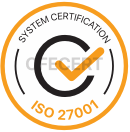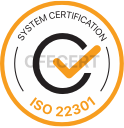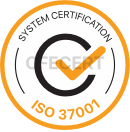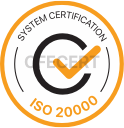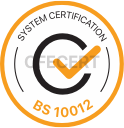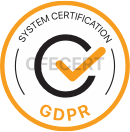Managing supply chain risks in cloud-enabled products is critical in today’s rapidly digitalizing business world. While cloud technology increases the efficiency and flexibility of businesses, it also brings supply chain risks.
For example, in 2017, a failure at Amazon Web Services’ data center in Virginia caused a number of popular websites and applications to crash. Platforms such as Slack and Trello were affected. This incident highlighted the supply chain risks in cloud computing and prompted businesses to reassess their reliance on cloud providers.
Cloud technology has a significant impact on the supply chain in several ways. Firstly, it increases efficiency and provides flexibility so that changes in demand can be quickly adapted to and operations optimized. Secondly, it improves collaboration and communication by facilitating data sharing between different stakeholders. It also reduces costs and generally offers a lower-cost solution.
However, it can cause security and compliance issues and introduce provider dependency risks. Therefore, businesses should carefully select providers and manage risks when adopting cloud technology.
Healthy supply chains are based on healthy supplier partnerships. Weaknesses in a provider’s financial stability, capacity constraints or other issues can create instability. If a supplier’s reliability is in question, companies that rely on it may decide to diversify their sources or explore backup options to ensure a steady flow of materials or components.
Recommended strategies for managing supply chain risks are ;
Risk Assessment, Security Protocols, Training and Awareness, Backup and Recovery Plans, and Third-Party Audit. These strategies are used to identify potential vulnerabilities along the supply chain, strengthen cyber security, train and raise awareness of employees, ensure business continuity, and audit the security standards of third-party service providers. Managing supply chain risks in cloud-enabled products requires a proactive approach and continuous improvement. Businesses must be prepared for cyber security threats and implement security measures throughout the supply chain. Supply chain optimization and the establishment of supply chain control towers are also of great importance.
Supply chain optimization is critical for businesses because an integrated supply chain eliminates data silos, provides the speed and flexibility necessary to meet customer expectations, creates competitive advantage and adds agility.
Supply chain control towers provide real-time, end-to-end visibility, enabling businesses to effectively manage supply chain operations. Correlating data, making predictive decisions and collaborative information sharing gives businesses the ability to make faster and more precise decisions and increases operational efficiency. This optimizes inventory management and improves customer satisfaction.

ISO standards can be applied to manage supply chain risks in cloud-based products. An important standard for organizations in this context is ISO 27001. ISO 27001 specifies information security management systems and can be used to assess and mitigate the risks of cloud-based products in the supply chain. This standard also emphasizes third-party risk management. For more information, please contact us at info@cfecert.co.uk



